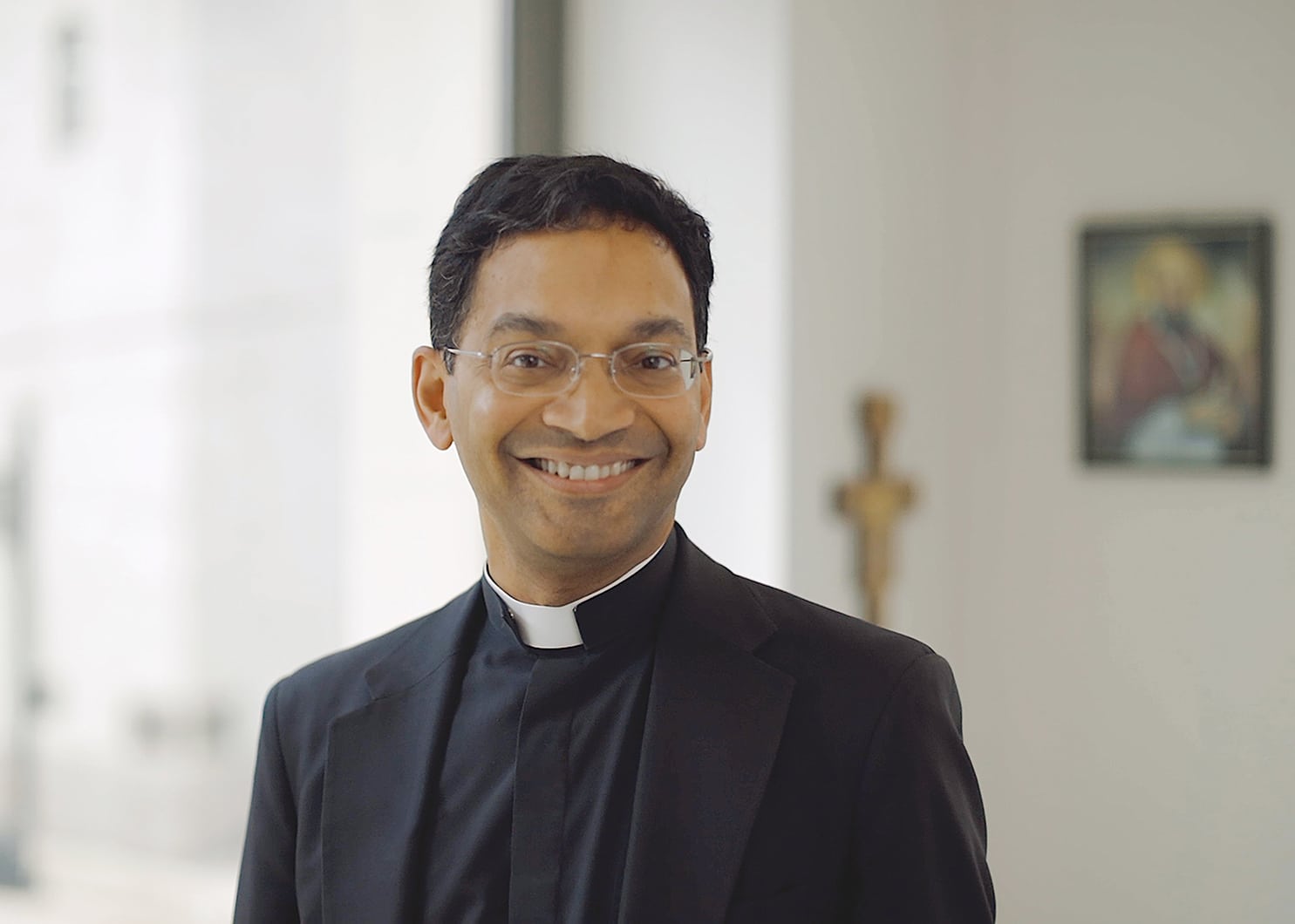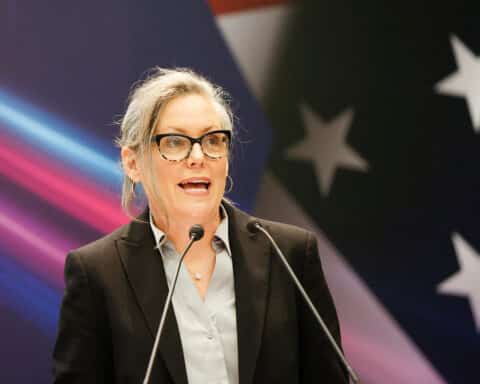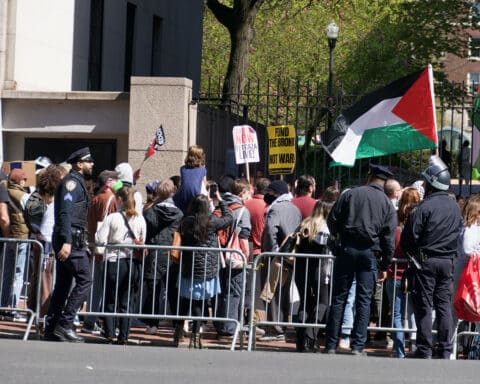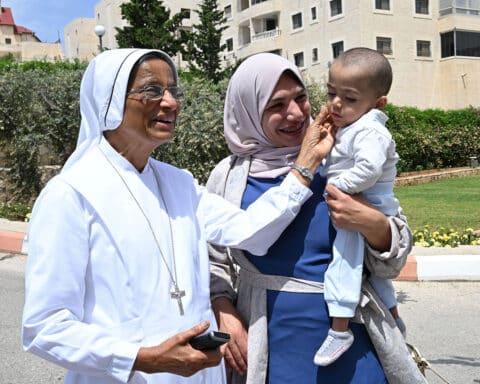(OSV News) — When people are impacted in their daily lives by strong examples of priests and religious faithfully living out their vocations, Bishop Earl K. Fernandes of Columbus believes that’s when vocations to the priesthood and religious life flourish.
Bishop Fernandes, who spoke with OSV News ahead of the World Day of Prayer for Vocations on April 21, said that he has tried to build “a culture of vocations” in his diocese, which has seen a doubling in the number of vocations to the priesthood over the past two years.
When he was ordained as bishop on May 31, 2022, he observed that there were more bishops ordained than priests that year in the diocese since there were no priestly ordinations and just 17 seminarians.
But this past year, the Diocese of Columbus has had 16 men enter the seminary, with 12 in the application process for next year. The diocese has a total of 37 seminarians and five priestly ordinations this year, as well as three men ordained to the transitional diaconate.
Fostering a culture of vocations
Bishop Fernandes is focused on fostering vocations through the joyful witness of priests of all ages in the diocese.
He brought up the example of 87-year-old Msgr. James Walter, a faithful, hardworking priest who “would bring young men to the Josephinum (seminary) for the come and see weekends” and “even in his old age, he radiated a type of a joy” that the bishop saw attracting people to the life of a priest.
The diocese has priests and religious teaching in diocesan high schools because Bishop Fernandes believes “day-to-day contact with young people” and “building a relationship of trust goes a long way.”
As a newly ordained priest, he taught in a Catholic high school in the Archdiocese of Cincinnati and two of his former students became priests with many others getting married and baptizing their children in theC. “Having a regular relationship with the Church,” he said, “is an important thing even before we propose priestly and religious vocations.”
In the diocese, he reinstituted the Andrew Dinner, a dinner every few months with young men who are discerning where they are able to engage and pose questions to him and seminarians. The diocese also has a Marian Dinner with religious sisters for young women discerning entry into religious orders.
The Melchizedek Project
The diocese launched the Melchizedek Project as well, in which young priests meet once a month with those who are discerning to read and discuss Father Brett Brannen’s book “To Save a Thousand Souls: A Guide for Discerning a Vocation to Diocesan Priesthood.“
“That’s been effective,” Bishop Fernandes said, because “it gets men who are discerning into a regular rhythm of prayer and discerning with others” and gives them “a spiritual guide who accompanies them.”
There are also Quo Vadis discernment retreats for high school students at the Pontifical College Josephinum seminary.
He believes young people need to know that “God is calling them after a purpose — whatever God has created them for — some definite purpose.”
Engagement with youth
Bishop Fernandes, who is among the youngest U.S. bishops at age 51, sees a tendency to oversimplify outreach to young people to make things “hip” and relatable, but he doesn’t see that approach as useful.
“They have profound needs and authentic desires for that which is true and good and beautiful,” he said of youth today, “rather than treat them in a childish way, I have found that young people — when you treat them with a degree of seriousness that they deserve — then they feel that you’ve actually taken them seriously, that you’ve listened to them.”
He believes young people often “fall away from the faith because they think that the Scriptures are all myths, make-believe fables and that none of this is real” because “they don’t see faith impacting people’s lives.”
“We sometimes reduce religion to a series of teachings or moralism rather than the fundamental encounter with Christ who changes your life and causes you to be converted and to live in a new way,” he said.
Two of the bishop’s favorite saints are St. Therese of Lisieux, his own family’s patroness, and his confirmation saint, St. Francis Xavier. “Both are patrons of the foreign missions,” he said, “St. Francis was a great Jesuit missionary who brought the gospel to India where my family is from, I often reflect on somebody coming from all the way around the world to bring the gospel to my people, and now it’s my turn to give back.” He says both of these saints capture “a missionary impulse,” which is so key to vocations today.
He sees evangelization and vocations as going “hand in hand” and that part of the priest’s role is to “animate the vocations of the lay faithful and the religious.”
Strong families and strong Church
“If we want to have a strong Church, we need to have strong families, and it’s in the strong family that the vocation can really be born,” he added.
“So many people are from broken families or hurting families, dysfunctional families, so we need credible witnesses to the universal call to holiness, to what faithful and fruitful marriage looks like,” he said, “but also what religious life could look like if you had a true community living with one heart and mind or a priest who joyfully celebrates Mass, who makes himself radically available for confessions.”
“It’s a result of the vocations crisis,” he said, “that priests no longer have a lot of extra time to spend with their people and people feel like the priest is too busy … but this is really what makes a difference: when you have a deep personal relationship.”
He said often people don’t understand what a priest’s life is really like and have a “lack of credible witness” to strong vocations in their communities. “If people understood who the priest is in their community,” and how “the priest brings us Jesus,” he said “those things would generate more positivity.”
He said that a fear of failure is a real factor for young people discerning vocations to the priesthood.
He quoted St. Teresa of Calcutta saying that “God does not require that we be successful, only that we be faithful.” It’s good to remember that “mistakes and failures only remain true failures, true mistakes if we don’t learn from them,” he said, “and even if we fail, the Lord loves us no less. We try again, we get back up.”
He called the priesthood “a great life” and one “filled with joy,” a “sense of fraternity” and a generosity involving a radical giving of oneself that makes up “the sacrificial nature of the priesthood.” He pointed out that priests regularly answer calls to be present with the dying at 2 or 3 in the morning and that’s “something beautiful” that “impacts people’s lives.”
He said that the Church has worked to make parishes safer in addressing sexual abuse scandals. However, in the wake of such scandals, “if you want to be a priest, a lot of the status that was once associated with the priesthood is gone. You have to earn people’s trust and respect, and you have to be willing to work hard for them.”
Bishop Fernandes said he is continually impressed by the young men who stand up and say “here I am” in answer to a call to the priesthood.
Encouragement for discerners
For young people discerning a call to the priesthood or religious life, he emphasized the importance of daily prayer, frequent Mass attendance and time with the Lord in adoration. He added that they should find a spiritual director, whether that’s their parish priest or another priest that they trust.
He sees young people today facing all kinds of external pressures, and, he said, they would do well to listen to the words of St. Francis de Sales, who said “be who you are and be that well in honor of the Master Craftsman whose handiwork you are.”
“We’re called to be comfortable in our own skin,” he said, “God has given us this mind, this body, this heart by which we can love him and serve him and know him. And it’s important for us, for our own humanity, to encounter the Lord and to see how he’s calling us.”





